I have just returned from a road trip to the Mississippi Delta in the Deep South of the United States as part of my 60th birthday celebrations with my family. We did the Golden Music Triangle (New Orleans-Memphis-Nashville), including a stop in Clarksdale, home of the Dixie Blues. This trip has been on my bucket list for a while. Experiencing the roots of ragtime, blues, jazz, gospel, rock-and-roll, soul and country music first-hand was exhilarating.

I have returned refreshed and resolved to explore music even more deeply than in the past. I am doing this with my wife, and we are starting by exploring the musicians of Clarksdale. We hope to listen to the canon of each Clarksdale musician, one at a time, and to learn about them as people.
Having quality time to focus on my family and music has been a liberating experience. It has also made me question why I have been so slow to adopt music therapy into my management plans for people with MS (pwMS). I don’t recall actively referring or recommending music therapy to any of my patients despite being aware that music therapy helps pwMS (see review paper below) and is supported by a solid scientific evidence base. I, therefore, want to apologise to all my patients and all the music therapists out there for ignoring you. I will now add music and music therapy to my holistic management of MS, including my holistic management of MS diagram and will actively mention music therapy in future MS educational talks.
Scientific evidence
Music has clear effects on the brain. It is not just a form of entertainment; it is a universal language that carries the power to evoke emotions and memories and alter moods. Numerous studies have examined its profound effect on the human brain, revealing insights into how music interacts with our cognitive processes, emotional well-being, and neurological health.
The cognitive effects include enhanced learning and memory. Music significantly aids in learning and memory retention. Studies have shown that music activates various brain areas, including memory processing. For instance, recalling information is better when it is set to familiar music.
Music improves attention and concentration. Background music, especially instrumental and classical music, can enhance concentration on tasks by stimulating the brain's attention centres while providing a calming environment that reduces stress levels.
Music has an emotional impact and helps regulate mood. Music directly impacts the limbic system, the part of the brain responsible for emotion and mood regulation. Listening to music can release dopamine, one of the neurotransmitters associated with pleasure and reward, thereby improving mood and potentially reducing stress and anxiety.
Music therapy for mental health
Music therapy has emerged as a valuable tool for treating various psychological conditions, including depression, anxiety, and post-traumatic stress disorder (PTSD). It provides an emotional outlet and a means for self-expression, which can help individuals process emotions and reduce stress.
Brain Health
Listening to music, and even more, so playing an instrument, can stimulate neurogenesis (the growth of new neurons). Active engagement with music enhances brain plasticity, the brain's ability to reorganise itself by forming new neural connections, which can lead to improved brain function.
Some research suggests that music can have neuroprotective effects, potentially lowering the risk of cognitive decline in diseases like Alzheimer's. Musical exposure can engage the brain in a complex cognitive process that helps to maintain cognitive functioning in old age. I suspect music will have the same effect in pwMS.
Music involves timing, rhythm, and coordination, affecting the brain's motor regions. Playing an instrument, for example, can improve fine motor skills, coordination, and timing, so physiotherapists often advise doing physical therapy to music.
Social Health
Music is inherently a social experience that fosters community and emotional bonds among people, connecting us through shared experiences and cultural identities. Group musical activities, like choirs or bands, enhance feelings of belonging and social cohesion and contribute to participants' collective joy and emotional upliftment. This may be why patients with MS who belong to choirs or play music in social settings report that music helps their MS.
As with most allied medical therapies, their availability could be better across the NHS and other healthcare systems. I am not aware of a music therapist in my NHS trust, nor am I aware of community-based music therapy services outside of psychiatric settings. Therefore, I would like to hear if you have been referred for music therapy in person or online and if your experience is helping your MS symptoms.
If you want more information on music therapy, I recommend reading the review article below and visiting the British Association for Music Therapy’s (BAMT) website, which has a lot of useful information.
Thank you
I want to thank all of you who sent me such kind messages for my Birthday. Your generosity is much appreciated.
Review paper
Background: Interdisciplinary therapies for the management of people with multiple sclerosis (MS) are underappreciated. There is an urgent need to introduce music therapy (MT), either alone or in combination with physical therapy (PT), into clinical practice to achieve synergy with disease-modifying therapies. A holistic approach to rehabilitation for people with MS may mitigate symptoms and reduce polypharmacy, potentially lowering healthcare costs.
Results: As MS progresses, patients experience a range of worsening symptoms, and many develop psychosocial comorbidities. As disease-modifying therapies delay disability progression, nonpharmacologic treatments become increasingly important. The main aim of PT is to improve or maintain patients' functional mobility, strength, and flexibility. Because it targets multiple functions, MT can help improve functional and psychosocial domains and may be a valuable intervention to help patients achieve the physical, cognitive, and emotional goals of PT. Exploratory studies showed that MT, alone or in combination with PT, can lead to functional improvements in mobility, balance, gait, and fatigue. Similar to PT, MT also has benefits in improving fine motor skills, cognition, learning, and memory and in providing emotional support.
Conclusions: Both MT and PT have the potential to improve overall well-being and health-related quality of life in physically active patients with MS, and MT can provide added emotional support for those who are less able to engage in physical activity. However, MT is not typically a part of standard of care, and PT visits are limited. Nevertheless, interdisciplinary therapies should be incorporated into clinical practice.
Subscriptions and donations
MS-Selfie newsletters and access to the MS-Selfie microsite are free. In comparison, weekly off-topic Q&A sessions are restricted to paying subscribers. Subscriptions are being used to run and maintain the MS Selfie microsite, as I don’t have time to do it myself. You must be a paying subscriber if people want to ask questions unrelated to the Newsletters or Podcasts. If you can’t afford to become a paying subscriber, please email a request for a complimentary subscription (ms-selfie@giovannoni.net).
Important Links
X (Twitter) / LinkedIn / Medium
General Disclaimer
Please note that the opinions expressed here are those of Professor Giovannoni and do not necessarily reflect the positions of Queen Mary University of London or Barts Health NHS Trust. The advice is intended as general and should not be interpreted as personal clinical advice. If you have problems, please tell your healthcare professional, who will be able to help you.







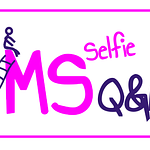

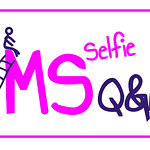
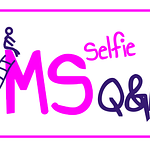
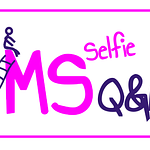

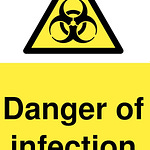
Music therapy: under appreciated but not forgotten